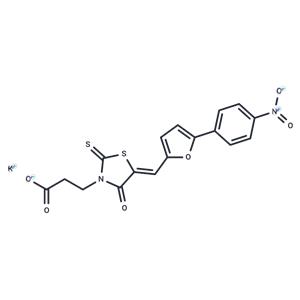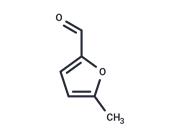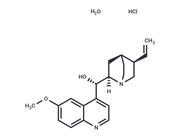| Name | KYA1797K |
| Description | KYA1797K is a highly potent and selective inhibitor. Wnt/β-catenin IC50 is 0.75 μM through TOPflash assay. |
| Cell Research | To assay cell proliferation, HCT15 or SW480 cells are plated at a density of 2 × 104 cells/well, and D-WT or D-MT cells were seeded at a density of 1×104 cells/well in a 24-well plate. The cells are then treated with 25 μM KYA1797K or with control (DMSO) for 72 h. In a 96-well plate, cells are seeded at a density of 3 × 103 cells/well. After 24 h, the cells are treated with KY1220, KYA1797K, IWR-1 or XAV939 for 4 d. Next, MTT reagent is added to each well at a concentration of 0.25 mg/ml. After incubation for 2 h at 37°C, insoluble purple formazan is obtained by removing the medium and incubating in 1 ml (24-well) or 200 μl (96-well) of DMSO for 1 h. The absorbance of the formazan product is determined at 590 nm every 24 h. (Only for Reference) |
| In vitro | KYA1797K significantly decreases reporter activities for the Wnt/β-catenin and MAPK/ERK pathways but does not affect the reporter activities of other cancer-related pathways, such as the Notch and TGFβ pathways, thus, KYA1797K selectively regulates the Wnt/β-catenin and Ras/ERK pathways. KYA1797K enhances the β-catenin binding affinity of endogenous axin, GSK3β and β-TrCP. Interaction between APC and β-catenin is not enhanced by KYA1797K. It promotes the formation of the β-catenin destruction complex. KYA1797K degrades both β-catenin and Ras in these cells(CRC lines SW480, LoVo, DLD1 and HCT15) in a dose-dependent manner, cell proliferation is also suppressed by KYA1797K treatment. KYA1797K inhibits proliferation of CRC cells mainly via destabilization of β-catenin with additional Ras degradation. KYA1797K directly targeted axin and modulated conformation of the β-catenin destruction complex[1]. |
| In vivo | KYA1797K administration by intraperitoneally injection(i.p.) (25 mg/kg) reduces both weight and volume of the tumor by 70% in mice carrying xenografted tumors from the D-MT cell line that harbors both APC and KRAS mutations. KYA1797K treatment significantly reduces levels of β-catenin and Ras proteins as well as Wnt/β-catenin and Ras signaling target. No change in the weight and no abnormalities in liver tissues of mice treated with KYA1797K. KYA1797K significantly reduces the subcellular localization of β-catenin in the nuclei and pan-Ras on the membrane of tumor cells. Thus, KYA1797K has anti-tumor effect[1]. |
| Storage | Powder: -20°C for 3 years | In solvent: -80°C for 1 year | Shipping with blue ice. |
| Solubility Information | DMSO : 6 mg/mL (13.56 mM), Sonication is recommended.
|
| Keywords | Wnt | Beta catenin | β-catenin | inhibit | KYA1797K | Inhibitor | KYA-1797K |
| Inhibitors Related | Urea | PRI-724 | Wnt pathway activator 1 | L-quebrachitol | MSAB | EMT inhibitor-1 | Wogonin | CHIR-99021 | XAV-939 | Nefopam hydrochloride | KY-05009 | Bisdemethoxycurcumin |
| Related Compound Libraries | Highly Selective Inhibitor Library | Reprogramming Compound Library | Bioactive Compound Library | Anti-Obesity Compound Library | Anti-Cancer Metabolism Compound Library | Inhibitor Library | Neuroprotective Compound Library | Bioactive Compounds Library Max | Cytoskeletal Signaling Pathway Compound Library | Wnt/Hedgehog/Notch Compound Library |

 United States
United States



